Category: music
You are viewing all posts from this category, beginning with the most recent.
Essential Jams: ”Fugace” from Bolling’s Suite for Flute and Jazz Piano Trio
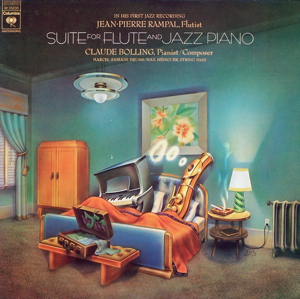
So much to love about this. I wanted to find a recording that wasn’t the canonical Bolling/Rampal version… this one is pretty great. I love the way the flautist starts the theme and the trio looks at each other as if to say ”wow, this tempo is hot”. (I checked and they are playing it right at the tempo of the canonical recording.)
Such a joyful piece, and by the time they get to the final restatement of the theme as a swinging four-piece band (say, about 3:20 in the video), how can you not have a smile on your face?
In my best world I would have a flautist, drummer, and bassist I could play this with. So much fun. Enjoy!
By the Waters of Babylon - Joey Weisenberg
I don’t remember who shared this on Twitter the other day, but I listened to it once and it’s been stuck in my head ever since. Joey Weisenberg leads this Jewish musical group singing a song inspired by Psalm 137. It’s sort of like if The Lone Bellow started writing music for your local synagogue. So dang good.
He’s got a bunch of albums up on Bandcamp, but it appears that this might be the only song in English of the whole bunch. My lack of knowing Hebrew isn’t stopping me from enjoying the rest of his music, though.
We keep living anyway
The chorus of this tune has resonated in my head a lot this week.
Theodosia writes me a letter every day
I’m keeping her bed warm while her husband is away
He’s on the British side in Georgia
He’s trying to keep the colonies in line
But he can keep all of Georgia
Theodosia, she’s mine
Love doesn’t discriminate
Between the sinners
And the saints
It takes and it takes and it takes
And we keep loving anyway
We laugh and we cry
And we break
And we make our mistakes
And if there’s a reason I’m by her side
When so many have tried
Then I’m willing to wait for it
I’m willing to wait for it
My grandfather was a fire and brimstone preacher
But there are things that the
Homilies and hymns won’t teach ya
My mother was a genius
My father commanded respect
When they died they left no instructions
Just a legacy to protect
Death doesn’t discriminate
Between the sinners and the saints
It takes and it takes and it takes
And we keep living anyway
We rise and we fall
And we break
And we make our mistakes
And if there’s a reason I’m still alive
When everyone who loves me has died
I’m willing to wait for it
I’m willing to wait for it
I am the one thing in life I can control
I am inimitable
I am an original
I’m not falling behind or running late
I’m not standing still
I am lying in wait
Hamilton faces an endless uphill climb
He has something to prove
He has nothing to lose
Hamilton’s pace is relentless
He wastes no time
What is it like in his shoes?
Hamilton doesn’t hesitate
He exhibits no restraint
He takes and he takes and he takes
And he keeps winning anyway
He changes the game
He plays and he raises the stakes
And if there’s a reason
He seems to thrive when so few survive, then Goddamnit
I’m willing to wait for it
I’m willing to wait for it…
Life doesn’t discriminate
Between the sinners and the saints
It takes and it takes and it takes
And we keep living anyway
We rise and we fall and we break
And we make our mistakes
And if there’s a reason I’m still alive
When so many have died
Then I’m willin’ to_…_
(“Wait for It“, from Hamilton, words and music by Lin-Manuel Miranda)
Kermit does Jazz: there's video.
The other day I mentioned goofing around with the idea of Kermit the Frog singing a jazz version of Rainbow Connection. Turns out, our church tech guy had the camera running.
10 Albums, 10 Days: Also-Rans
Culling my list down to 10 albums was a challenge. Here are a few also-rans that just didn’t quite make the cut:
The Morning - Andrew Osenga
This one got a lot of play time from me, and I spent a lot of time playing its songs. Andy O’s solo stuff continues to be meaningful to me, but this one hit the sweet spot where our life experiences aligned and I felt like he was writing about the things that I’d write about if only I had any skill at writing songs.
In Rainbows - Radiohead
Radiohead is another band I came to mid-stream. In Rainbows is not usually listed as anybody’s favorite Radiohead album, but it was the gateway for me into their music. I dig it.
All That You Can’t Leave Behind - U2
Same story - this was the gateway for me into U2’s music. Such a good record.
Hamilton Original Broadway Cast Soundtrack - Lin-Manuel Miranda and cast
All that stuff I said about my love for smart wordplay? Hamilton has that in spades. More than any other record I can think of. My love for Hamilton knows no bounds.
Kermit does Jazz?
I’m playing keys for the church livestream this morning, which in the end results in me having a bunch of time to mess around with a keyboard between rehearsal and the stream itself. Put a few of us musicians together and you never know what you’re gonna get.
So here’s the musical idea I came up with this morning: Kermit the Frog, singing Rainbow Connection… in a jazz style, a la Ella Fitzgerald.
Funny part is, it kinda worked. I was gonna try to do a chorus scatting but my good sense got the better of me. Our sound guy apparently has it all recorded, though… one of these days he’s gonna do a blooper reel and it’s gonna be hilarious and awesome and scary all at the same time.
10 Albums, 10 Days: A Liturgy, A Legacy, and a Ragamuffin Band
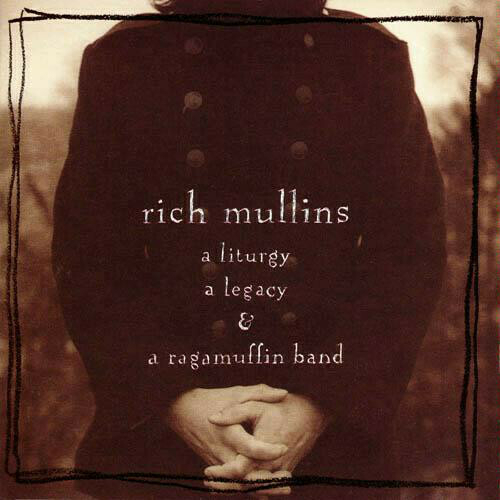
Maybe this one should’ve been first on my list, but I decided to leave the best for last. Rich Mullins was a formative artist - perhaps the formative artist - of my musical life. I spent more time learning his piano licks (well, Reed Arvin’s piano licks) and sitting at the piano singing his songs than any other songwriter. Liturgy, Legacy wasn’t my first Mullins album, but it is the best.
Structured in two halves, the A-side (Liturgy) half of Liturgy, Legacy captures all the best of Rich Mullins. His tender vulnerability with his audience (Here In America), his keen awareness of nature’s declaration of the glory of God (The Color Green), his raw and honest heart wrestling with brokenness (Hold Me Jesus), his firm confidence in the faith (Creed), his struggles in relationship to other saints (Peace)… and that’s just the first half of the album.
Then comes the Legacy side, where Rich plays his hammered dulcimer for an instrumental and then explores the challenges of living life in the real world (Hard), wrestles with the challenges of coming from a real family and carrying their legacy (I’ll Carry On), shares the joy of Christmas (You Gotta Get Up), laments the corrupt systems of society (How to Grow Up Big and Strong) and explores the tension of both loving the country you’re born into while yearning for a better kingdom (Land of My Sojourn).
Every song on the record is a gem. And the fact that I just wrote those last two paragraphs directly from my memory of the album tells me something about how ingrained it is in my head and heart.
The other formative piece about Rich Mullins and this album is that Rich was the formative artist for many of the other artists I have included on this list. He was a mentor for Caedmon’s Call. He was the inspiration for Andrew Peterson’s songwriting. If you look behind the scenes at the artists who made Peterson’s Behold the Lamb of God record, each of them will point to Rich as the one who charted the course they are following. Then there’s also that weird bit where a guy from Rich’s band also wrote some of the songs for That Thing You Do!, but that’s a different story…
For the 20th anniversary of this record, Andrew Peterson and friends put on a tribute concert at The Ryman in Nashville where they played a bunch of Rich’s other songs up front and then played this album through front to back for the second half of the show. It is, hands down, the best concert I’ve ever attended. Amazingly almost none of it seems to have made it to YouTube, but here’s a taste.
I could go on and on and on but I’ll stop here. Suffice it to say that if you want to really get to the heart of the music that has formed me and shaped my musical soul, go listen to Rich Mullins. Peace.
10 Albums, 10 Days: Rachmaninov’s Vespers (All Night Vigil)
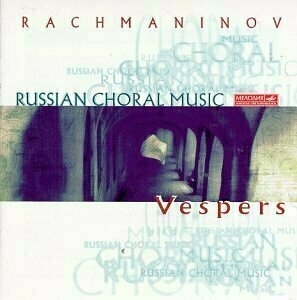
I’ve really been wrestling with what album to post for day #9. But I’m gonna go with one that chronologically belongs back near the beginning of this series somewhere: Rachmaninov’s Vespers (All Night Vigil). An a capella choral composition of settings from the Russian Orthodox’s All-night vigil service, it was reportedly one of Rachmaninov’s favorites of his own works and is a peaceful, stately work of surpassing beauty.
My first encounter with Vespers feels in retrospect like a very “Chris” story. I was probably 12. I was listening to NPR on the radio. (Yes, at 12.) Toward the end of some radio program (probably Fresh Air, but who knows), a music critic was comparing various new recordings of Vespers, pointing out how the Robert Shaw Chorale was perhaps more technically polished, but how the Russian choir recording was more vibrant. What I knew was that it was gorgeous music that I didn’t want to forget.
It was probably a year or two before I bought the CD at a music store. If I recall correctly, this first recording I purchased was by the USSR Ministry of Culture Choir. It was wonderful. I’ve since purchased a couple more versions on CD, and now in today’s world of streaming music I have an overwhelming number of recordings to choose from.
Regardless of which version you listen to, the beauty of the composition shines through, and a read through the translation of the Russian texts reminds you that classical church music isn’t limited to Bach and Handel and their western ilk. This is truly wonderful stuff, and shaped my musical inclinations from a young age. Worth a listen.
10 Albums, 10 Days: Bride of the Noisemakers
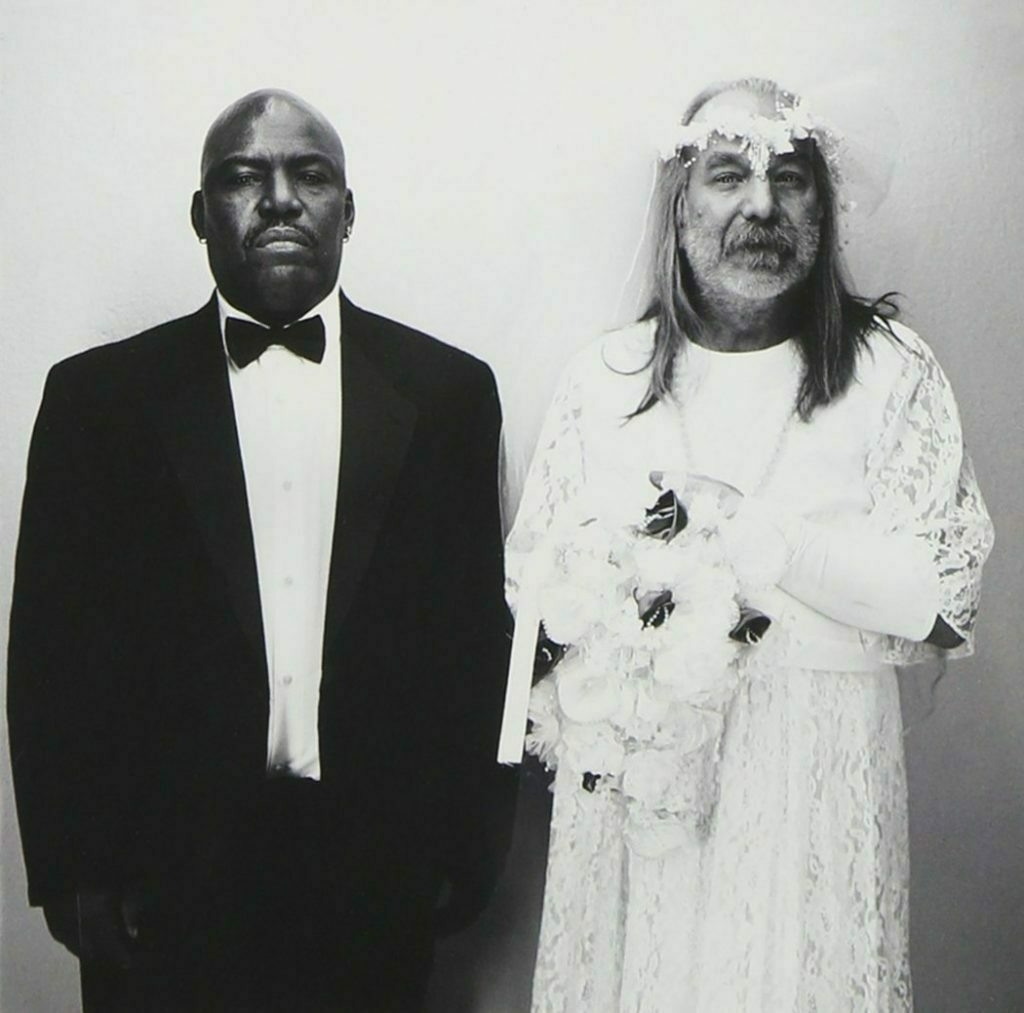
I got tagged on Facebook to do this project – share ten albums that greatly influenced my taste in music. One album per day for ten consecutive days. In theory for the Facebook version this is supposed to be without explanation… but I want to explain! So I’m going to blog the explanations here.
Now we come to Bruce Hornsby. I’m not sure whether to classify this record as influential because it shaped me, or influential in that I came to it and felt an instant musical kinship. Either way, wow, this record.
Somehow I had gotten a decade into my adulthood without being familiar with Bruce Hornsby’s music. I unwittingly knew one of his hits because Rush Limbaugh used it as bumper music (back in the dark ages when I listened to Limbaugh), but that was it. But then one day I found this album - I think as a discounted digital download from Amazon - and I was hooked.
Hornsby is an amazing technical pianist - I wish I had fingers like that - but has made his career basically leading rock jam bands. Bride of the Noisemakers is a double-length live album containing the best of Bruce along with his band (the Noisemakers). They repeatedly take what would be 4-minute songs on a studio album and turn them into 10-minute jam sessions, trading back and forth between piano, guitar, bass, drums, and saxophone.
I resonate strongly with this record because, if it doesn’t sound too obnoxious, Hornsby’s playing style and harmonies feel a lot like my own. One could listen to me improvise and think that I had learned from Hornsby even though I had never really listened to his stuff. I’m not sure where that came from, but I’m happy for it.
A couple years ago my wife and I had the opportunity to hear Hornsby live here in town. It was a solo show - just him and the piano - but a fantastic couple of hours not just enjoying the songs but also getting my head around how his brain processes stuff as a musician. (I wrote up some thoughts the next day.)
In general I prefer live music performances to studio recordings, and even better if I can see the band and enjoy their interaction as artists creating music. As such, this live Bruce Hornsby record is a no-brainer for my list.
10 Albums, 10 Days: The Suburbs
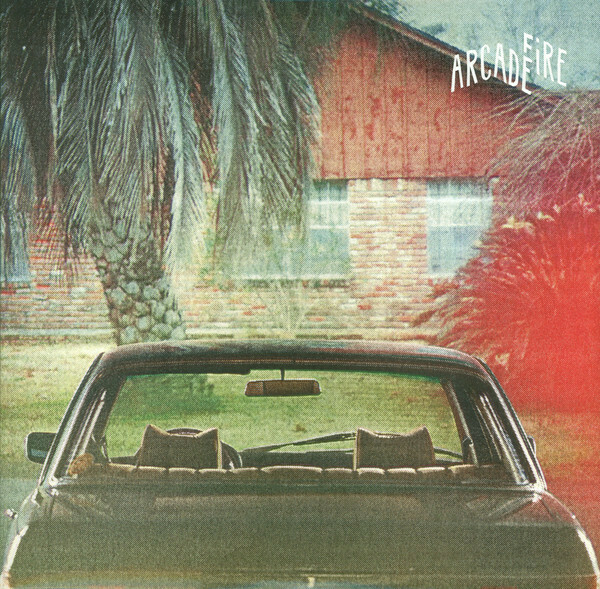
I got tagged on Facebook to do this project – share ten albums that greatly influenced my taste in music. One album per day for ten consecutive days. In theory for the Facebook version this is supposed to be without explanation… but I want to explain! So I’m going to blog the explanations here.
Once again, another band that I jumped in to mid-stream and then backfilled. I don’t remember how Arcade Fire jumped onto my radar, but once I started listening to The Suburbs it was a long time before I stopped. It became my running soundtrack the year I trained for (and ran) a half marathon, and those repeated listens let it soak deeply into my brain.
Win Butler, lead singer and key songwriter for Arcade Fire, grew up Mormon in Texas before moving to Montreal, Canada as an adult. Maybe I’m reading too much into his upbringing, but when I listen to his songs I hear a kindred spirit wrestling with a fundamentalist upbringing, a disenchantment with the brokenness of the world, and a desire for something more.
The Suburbs was a record that seemed to grow out of nowhere to then get substantial recognition. It won the Grammy for Best Album of the Year for 2010, but even as the host announced the award, they seemed unsure of whether the band name was “Arcade Fire” or “The Suburbs”. But wow, it landed for me.
I still kick myself a bit that I passed up an opportunity to stand in line and see Arcade Fire play in a little bitty discotheque in Montreal when I was up there for work several years ago. I did see them finally in an arena show on the Reflektor tour, and they were fantastic live.
Once I got hooked on Arcade Fire, I went back and got familiar with the rest of their discography and gained a deep appreciation for those, too. While my favorite AF song and favorite AF lyric may neither show up on The Suburbs, it remains my favorite front-to-back album of theirs, and deserves a spot on my 10 albums list.